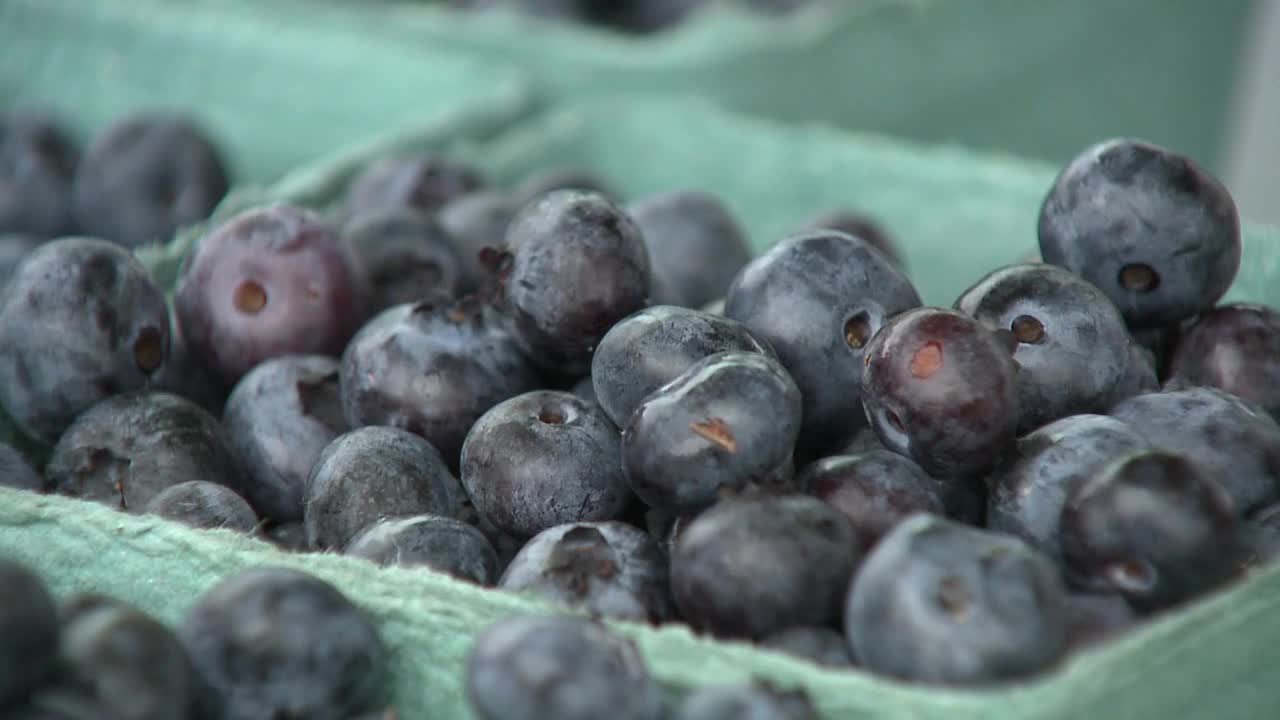BANGOR, Mich. — “They start green, then they get to a bluish color,” Meyers Acres Farm operator Bruce Meyers explains as we tour his blueberry fields.

It’s the height of blueberry season in West Michigan, and that bluish hue means these berries are ripe for the picking. With more than 300 bushels of blueberries, Blueberry Bruce, as he goes by, has plenty of crops to tend to, especially during this busy season.
“There’s a lot of work that happens before and after,” Meyers said.
He’s built for getting his hands dirty. An Army veteran, he was medically discharged because of a neurological disorder.

“Eventually, the fluid will fill up so much that potentially I’ll lose the use of my legs or my arms,” Meyers said.
But with a slight limp in his leg and a cane in his hand, pace doesn’t matter to Blueberry Bruce because today, his legs and arms are allowing him to prune, pick, and harvest for his farm stand. He does so with pride and compassion.
“It’s never leave anybody behind,” Meyers said. “That’s the goal.”

That military mantra is at work today at his humble farm stand, helping feed veterans like himself who may not be able to afford fresh produce.
“If you’re hungry, come out here, fill up your belly,” Meyers said. “I’m not going to charge you.”
What started as a simple gesture—offering dollar pints of blueberries to help neighbors save money—has now turned into a mission.
“Sometimes they can't even afford the dollar, and so we’ll just give it to them,” Meyers said.

Blueberry Bruce will continue to stand with his brothers and sisters in uniform, operating a simple roadside farm stand for as long as he can.
“And if I wake up and I feel good enough to go out there and trim trees and bushes and stand out here and sell my blueberries, that’s exactly what I’m going to do,” Meyers said.
South Haven, known as the Blueberry Capital of the World, boasts more than 300 growers cultivating over 18,000 acres of blueberries within a 50-mile radius. However, recent data from Michigan State University indicates that production costs for blueberry farming in the region are escalating.

In 2024, the average cost to produce blueberries hit $10,000 per acre, according to the study. Despite the high expenses, growers reportedly earn only about $240 per acre on average. This financial strain has prompted many farmers to offer U-pick options and other supplemental income strategies to maintain profitability.









